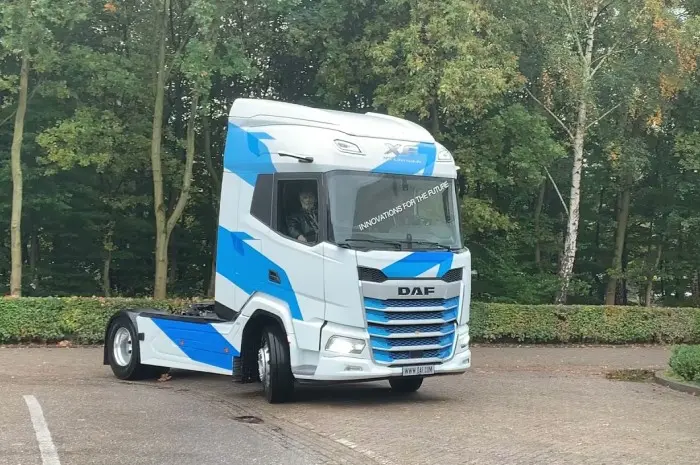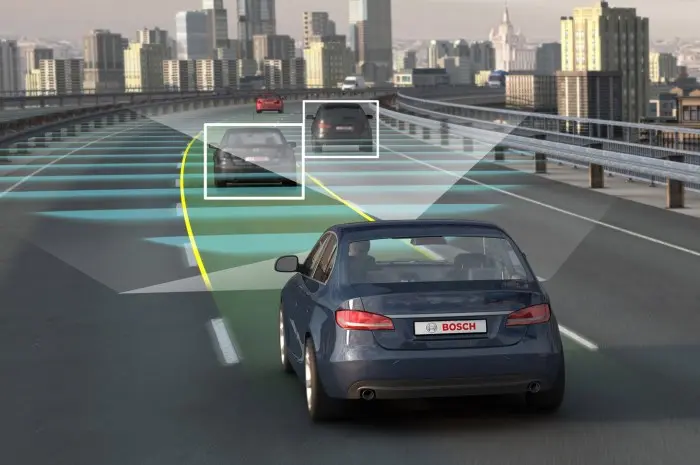DAF XF Hydrogen Fuel Cell EV Truck: Paving the Green Road Ahead
In the ever-evolving world of transportation, the quest for eco-friendly alternatives is a top priority. The DAF XF Hydrogen Fuel Cell Electric Vehicle (EV) Truck is a promising addition to the sustainable transportation landscape.
In this article, we will dive into the revolutionary DAF XF Hydrogen Fuel Cell EV Truck, exploring its features, benefits, and the future it envisions for the transportation industry.
Sustainability is the buzzword of our era, and the automotive industry is no exception. With a growing emphasis on reducing carbon footprints and embracing clean energy, the DAF XF Hydrogen Fuel Cell EV Truck has emerged as a beacon of hope in the realm of commercial transportation.
The Power of Hydrogen Fuel Cells
Before delving into the specifics of the DAF XF Hydrogen Fuel Cell EV Truck, let’s understand the technology that powers it – hydrogen fuel cells. These cells generate electricity through a chemical reaction between hydrogen and oxygen, emitting only water vapor as a byproduct. This emission-free process is a game-changer for the environment.
Meet the DAF XF Hydrogen Fuel Cell EV Truck
The DAF XF Hydrogen Fuel Cell EV Truck is a marvel of engineering. It combines the efficiency of electric vehicles with the range and refueling convenience of traditional diesel trucks. With its sleek design and cutting-edge technology, it’s a formidable contender in the transportation sector.
Efficiency and Performance
One of the most impressive features of the DAF XF Hydrogen Fuel Cell EV Truck is its remarkable efficiency. It boasts a longer range compared to pure electric trucks, making it suitable for long-haul transportation. Moreover, it offers swift acceleration and smooth operation, ensuring driver satisfaction and cargo safety.
Environmental Impact
Reducing greenhouse gas emissions is a global imperative, and this hydrogen-powered truck aligns perfectly with this goal. By emitting only water vapor, it contributes significantly to lowering the carbon footprint of the transportation industry.
Infrastructure and Refueling
To support the widespread adoption of hydrogen fuel cell trucks, an efficient refueling infrastructure is crucial. Companies are investing in building hydrogen refueling stations, making it increasingly convenient for truckers to choose this eco-friendly option.
Cost-Efficiency
While the initial investment in hydrogen fuel cell technology may be higher, the long-term cost-efficiency is undeniable. Lower fuel costs, reduced maintenance, and potential government incentives make the DAF XF Hydrogen Fuel Cell EV Truck an attractive choice for fleet owners.
Challenges and Limitations
No technology is without its challenges. Hydrogen production and storage, as well as the need for a robust supply chain, pose hurdles to its widespread adoption. However, ongoing research and development aim to address these issues.
The Road to Commercial Adoption
The journey toward widespread adoption of hydrogen fuel cell trucks is already underway. Major players in the logistics and transportation industry are gradually integrating these vehicles into their fleets, paving the way for a more sustainable future.
Global Initiatives
Around the world, governments and organizations are recognizing the potential of hydrogen fuel cell technology. Initiatives to promote its usage are gaining momentum, indicating a collective commitment to reducing emissions.
15 Hydrogen Cars To Look Out For
Hydrogen fuel cell technology is making waves in the automotive industry as a cleaner and more sustainable alternative to traditional gasoline and diesel-powered vehicles. With a growing focus on reducing carbon emissions and combating climate change, hydrogen-powered cars have gained significant attention.
In this article, we’ll explore 15 hydrogen cars that you should keep an eye on. From compact models to SUVs and even trucks, the world of hydrogen-powered vehicles is expanding rapidly.
The world is rapidly shifting towards cleaner and more sustainable modes of transportation, and hydrogen fuel cell technology is at the forefront of this revolution. Hydrogen cars are gaining popularity due to their efficiency, minimal environmental impact, and the promise of a greener future. In this article, we’ll delve into the world of hydrogen cars and highlight 15 models that are set to make a significant impact.
What Is Hydrogen Fuel Cell Technology?
Hydrogen fuel cell technology is a clean energy solution that converts hydrogen gas into electricity to power an electric motor. It’s an eco-friendly alternative to traditional internal combustion engines, as the only byproduct is water vapor. This technology offers zero tailpipe emissions, making it a crucial player in reducing greenhouse gases and air pollution.
The Advantages of Hydrogen Cars
Hydrogen cars come with several advantages, including:
- Zero Emissions: As mentioned earlier, hydrogen cars emit only water vapor, contributing to cleaner air and reduced greenhouse gas emissions.
- Fast Refueling: Refueling a hydrogen car takes a similar amount of time as filling up a gasoline tank, making it convenient for drivers.
- Longer Range: Hydrogen cars often have a longer driving range compared to electric vehicles, which is a significant selling point.
- Versatile Applications: Hydrogen fuel cell technology is not limited to cars. It can be used in buses, trucks, and even trains.
Challenges in Hydrogen Car Adoption
While hydrogen cars have their advantages, they also face challenges, including:
- Limited Refueling Infrastructure: Hydrogen refueling stations are still relatively scarce compared to gasoline and electric charging stations.
- Production Challenges: Producing hydrogen can be energy-intensive and relies on renewable energy sources to be truly sustainable.
- High Costs: Hydrogen cars tend to be more expensive than traditional gasoline-powered vehicles.
Toyota Mirai
The Toyota Mirai is one of the pioneering hydrogen fuel cell vehicles. It offers a sleek design, comfortable interior, and a range of advanced safety features. With Toyota’s reputation for quality and reliability, the Mirai is a strong contender in the hydrogen car market.
Hyundai Nexo
The Hyundai Nexo is another notable hydrogen car with a futuristic design and impressive technology. It boasts a spacious interior, advanced driver-assistance features, and a commendable driving range.
Honda Clarity
Honda’s entry into the hydrogen car arena is the Clarity. This sedan offers a smooth ride, a roomy cabin, and a competitive driving range. It’s a practical choice for those looking to embrace hydrogen technology.
BMW iX5 Hydrogen
BMW is known for its luxury vehicles, and the iX5 Hydrogen is no exception. This SUV combines the versatility of an SUV with the benefits of hydrogen fuel cell technology, making it an attractive option for eco-conscious SUV enthusiasts.
Riversimple Rasa
The Riversimple Rasa is a compact and lightweight hydrogen car designed with sustainability in mind. It’s perfect for urban driving and emphasizes efficiency and environmental responsibility.
Nikola Badger
The Nikola Badger is a hydrogen-electric pickup truck that aims to disrupt the truck market. With impressive towing capacity and rugged design, it’s a testament to the versatility of hydrogen technology.
Mercedes-Benz GLC F-CELL
Mercedes-Benz is known for luxury and innovation, and the GLC F-CELL is no exception. This hydrogen-powered SUV offers a premium driving experience while minimizing environmental impact.
Tata Motors H2X
Tata Motors is entering the hydrogen car scene with the H2X, a compact SUV that combines style and sustainability. It’s a promising addition to the hydrogen vehicle market.
Audi h-tron quattro
Audi’s h-tron quattro is an SUV that combines cutting-edge technology with hydrogen power. It offers a spacious interior, advanced infotainment, and a refined driving experience.
Rivian R1T
Rivian’s R1T is an electric truck with an optional hydrogen range extender. This innovative approach caters to those who need a pickup truck’s utility without compromising on sustainability.
The Future of Hydrogen Cars
The future of hydrogen cars is promising, with more automakers investing in this technology. As infrastructure improves and production becomes more sustainable, hydrogen cars will likely become a more accessible and eco-friendly choice for consumers.
Conclusion
Hydrogen cars represent a significant step towards reducing our carbon footprint and creating a cleaner environment. With technological advancements and growing support from automakers, the future of hydrogen cars looks bright.



